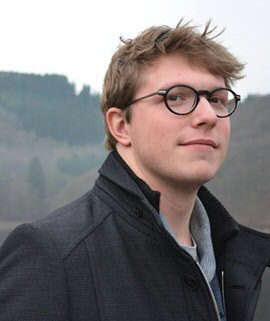Dutch literature reflects on big societal changes

Literature thinks productively about society through its forms and history, and thus participates in larger discussions. That is one of the results of PhD researcher Jesse van Amelvoort’s latest papers: “Anxious About a Changing World: Twenty-First Century Low Countries Gothic Novels”.
In this paper, Van Amelsvoort analyses Herman Franke’s novel Wolfstonen (2003) and Saskia de Coster’s novel Wat alleen wij horen (2015) from the perspective of the Gothic. Both novels have as central spaces an apartment building in which people from all walks of life live together, and both buildings are destroyed at the end of the books. He argues that Franke and de Coster use the Gothic – a mode of writing that was born in the 1760s, and has always been there in some shape or form; think of Frankenstein or Dracula for example – to thematize multiculturalism, migration and integration in the twenty-first century low countries (Netherlands and Flanders). The Gothic always has an eye on those who cannot participate, who cannot come along in society. In these two novels, the Gothic helps the writers give shape to societal anxieties about cohesion, identity, and borders.
The full article is open access and can be read here: https://www.tandfonline.com/doi/pdf/10.1080/03096564.2018.1551295
More news
-
15 September 2025
Successful visit to the UG by Rector of Institut Teknologi Bandung
